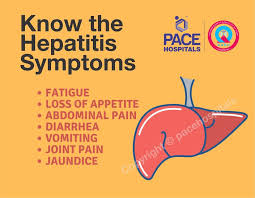
"A large number of Nigerians have undiagnosed hepatitis"
Many Nigerians are living with undetected hepatitis, according to Tanimola Akande, a professor of public health at the University of Ilorin in Kwara State.
In honour of the 2024 World Hepatitis Day, Akande, a former National Chairman of the Association of Public Health Physicians of Nigeria, stated as much in an exclusive interview with PUNCH Healthwise.
Every year on July 28, the world observes World Health Day to increase awareness of viral hepatitis, an inflammation of the liver that can lead to cancer and serious liver disease.
"It's time for action" is the celebration's theme this year.
The World Health Organisation states that non-infectious substances like alcohol, poisons, or medications can induce hepatitis, in addition to viral infections.
According to the WHO, there are five primary strains of the hepatitis virus – A, B, C, D, and E, saying that together, hepatitis B and C are the most common infections.
According to the World Health Organisation, hepatitis B and C cause 2.2 million new infections and 1.3 million deaths annually.
Additionally, the Nigeria HIV-AIDS Indicator and Impact Survey, 2018, calculated that among individuals aged 15 to 64, Nigeria has a prevalence rate of 8.1 and 1.1%, respectively, for Hepatitis B and Hepatitis C infections.
According to the report, more than 20 million Nigerians have either hepatitis B, C, or both, although more than 80% of the population is unaware of their status.
"A huge number of Nigerians are living with undiagnosed hepatitis," continued Akande, who previously served as head of the University of Ilorin's Department of Epidemiology and Community Health.
This is accurate as the majority of them are largely undiagnosed because some do not show symptoms and do not present to the hospital for testing.”
He pointed out that most patients only find out they have hepatitis B or C when they have a significant liver illness or cancer, with most symptoms only showing up once the disease has progressed.
"In this part of the world, the practice of periodic medical examination is low," stated Akande, a member of the Expert Review Committee on Poliomyelitis Eradication Initiative and Routine Immunisation in Nigeria. It would be great to see hepatitis eradicated globally.While some governments, especially those in developing countries, will be able to accomplish this aim, others won't be able to.
"There is little chance of success at the current rate of preventive actions in Nigeria. Liver inflammation is known as hepatitis. There are numerous reasons. Hepatitis can also be brought on by chemicals, alcohol, and drugs in addition to conventional viral causes.
"We must greatly raise public knowledge of hepatitis. People will show up for testing as a result of this. To guarantee that everyone can access testing, laboratory facilities must be supplied throughout Nigerian healthcare facilities.
This will support the disease's diagnosis. Additionally, health professionals' proficiency in hepatitis testing, diagnosis, and treatment must be increased.
Although many nations have implemented programs, regulations, and tactics to combat infectious diseases, Akande pointed out that there are, however, challenges in their implementation.
According to him, these challenges vary from one country to the other even as some countries have programme implementation failures due to poor funding or dependency on donors.
He pointed out that Nigeria has previously created a plan to combat the virus, which included guidelines for managing STDs and standard safety measures at places of employment like medical facilities.
In order to reduce the burden of the disease, Akande thinks that early detection through screening, case management, and free treatment are crucial.
"Reckless sexual behaviours, substance abuse, inappropriate use and disposal of sharps and needles, use of contaminated blood for transfusion, mother to child transmission, scarification, among others," he said while discussing the risk factors.
"Policies and guidelines must be put into place by the government in order to control hepatitis. All levels of funding for the control measures should be adequate.
Raising public awareness through health education and sensitisation is necessary at all governmental levels. Nigerians must be made more aware of preventive actions in order to influence a change in their behaviour.
Akande emphasised that the government should work to increase funds for the control programs because the execution of donor-funded initiatives aimed at combating the disease is highly dependent on them.
Nigerians ought to stop engaging in dangerous sexual conduct and make sure blood donors are well vetted. In order to receive early detection and treatment, Nigerians should also make sure they take advantage of the infection screening program, he continued.
He continued by saying that by guaranteeing that all expectant mothers who are suffering from chronic hepatitis B have access to treatment and that their unborn children have access to hepatitis B birth vaccinations to prevent infection, hepatitis-related deaths can be avoided and eradicated with streamlined care services for viral hepatitis.
He mentioned that at least 90% of individuals with hepatitis B and/or hepatitis C receive a diagnosis, and 80% of those who do are either cured of hepatitis C or receive treatment in accordance with the most recent enhanced eligibility criteria for hepatitis B.





